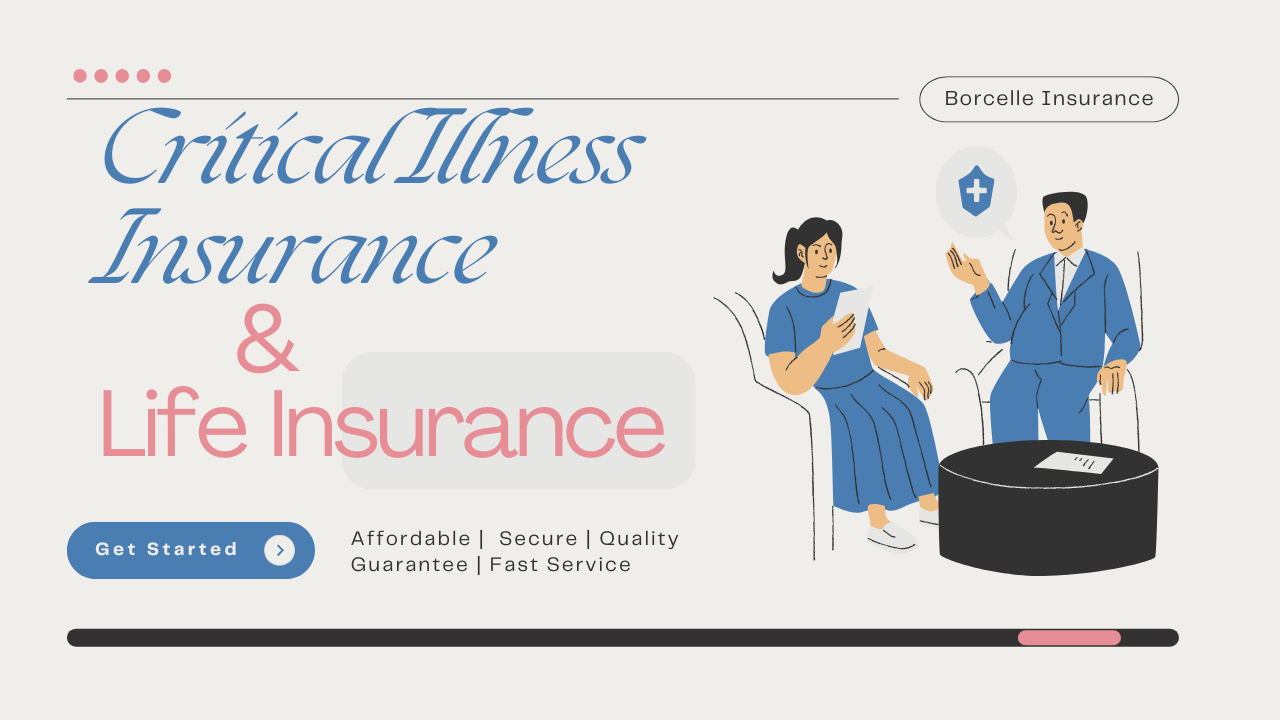A Guide to Life Insurance for Seniors Over 60: As we age, our financial priorities change. For seniors over 60, life insurance may not be designed to support a growing family or cover a mortgage. Alternatively, it may be to ensure loved ones are not burdened with final expenses or leave a financial inheritance. Whether you are considering life insurance for the first time or reevaluating your current policy, this guide will walk you through the basics of life insurance for seniors over 60, the options available, and how to make the right choice.
Why is life insurance important for seniors over 60?
Many people believe that life insurance is only necessary for younger people with dependents. For seniors, however, life insurance can still provide significant benefits. Even if your children are grown and your mortgage is paid off, life insurance can help cover final expenses and inheritance taxes, or simply provide financial security for a spouse or loved one.
Final Expenses and Funeral Expenses
One of the main reasons seniors purchase life insurance is to cover final expenses. Funeral and burial costs and medical bills can add up quickly, and life insurance ensures your family doesn’t have to bear that financial burden. A small life insurance policy can be enough to cover those costs and provide peace of mind.
Leave a Financial Legacy
Many seniors want to leave something to their children or grandchildren or give to charity. Life insurance can be a great way to build a financial legacy without having to rely on retirement savings. Naming beneficiaries can help ensure that the people or organizations you care about most will receive financial support even after you die.
Types of Life Insurance for Seniors
There are several types of life insurance available for seniors ages 60 and older. Choosing the right policy depends on your needs, health, and budget. The most common options are term life insurance, whole life insurance, and guaranteed life insurance.
Term Life Insurance
Term life insurance provides coverage for a specific period of time, typically 10, 20 or 30 years. For seniors over 60, term life insurance can be a cost-effective option if you only need coverage for a limited time. For example, if you’re concerned about covering expenses until your spouse begins receiving retirement benefits, a 10- or 15-year policy may be sufficient.
Pros of term life insurance:
- Reasonable rates
- Flexible coverage period
- Ideal for temporary needs
Cons of term life insurance:
- No exchanges if the policyholder lives beyond the term
- Premiums increase significantly as you age
Whole life insurance
Term life insurance provides coverage for your entire life as long as you continue to pay the premiums. Unlike term life insurance, term life insurance also builds cash value over time that can be borrowed or used to pay future premiums. This type of policy is a good option for seniors who want to cover their final expenses for life or leave an inheritance to their loved ones.
Advantages of Life Insurance:
- Whole life coverage
- Creates cash value
- – Fixed premiums that do not increase with age
Disadvantages of Life Insurance:
- More expensive than term life insurance
- Cash value grows slowly compared to other investment options
Guaranteed Issue Life Insurance
Guaranteed issue life insurance policies are designed for seniors who may not qualify for traditional life insurance due to health reasons. As the name suggests, these policies are guaranteed, i.e. no medical exams or health questions are required. However, guaranteed issue policies typically have lower coverage amounts and higher premiums.
Benefits of Guaranteed Life Insurance:
- No medical exam or health questions
- Easy to get
- Ideal for people with health issues
Disadvantages of Guaranteed Life Insurance:
- Higher premiums
- Lower coverage amounts
- Waiting period (usually 2-3 years) before full benefits are paid
Important factors when choosing life insurance for seniors
When choosing life insurance as a senior, there are several factors to consider to ensure you choose the best plan for your needs and financial situation.
Your health and age
As you age, your health and age become important factors in determining the type of life insurance you may qualify for and the amount of your premiums. Generally, the younger and healthier you are, the lower your premiums will be. If you are healthy, you may still qualify for term or whole life insurance, but if you have pre-existing conditions, a guaranteed policy may be more appropriate.
Amount of coverage needed
Think about how much coverage you need. Do you just want enough to cover your final expenses, or do you want to leave a financial gift for loved ones? The more coverage you need, the higher your premiums will be. A financial advisor can help you calculate the right amount based on your goals and specific situation.
Your Budget
Life insurance premiums increase as you age, so it’s important to choose a policy that fits your budget. Whole life insurance is generally more expensive than term life insurance, and guaranteed issue policies tend to have higher premiums due to under-underwriting. Carefully evaluate how much you can afford in premiums without straining your finances.
Documentary Supplements
Many life insurance policies offer add-ons, which are extra features that can be added to the policy for an additional cost. Common senior supplements include the Long-Term Care Supplement, which covers the cost of long-term care, and the Accelerated Death Benefit Supplement, which gives you access to a portion of your death benefit if you are diagnosed with a terminal illness.
How to Apply for Senior Life Insurance
The process for applying for senior life insurance is similar to that for younger people, but may require more detailed health assessments. Here’s what you can expect:
Medical Exams
Many life insurance policies require a medical exam as part of the application process. The exam typically includes basic tests such as blood pressure checks, blood tests, and a review of your medical history. The results of this exam help determine your premiums.
Documentary No Exam
If you’d rather avoid the medical exam, some companies offer life insurance policies with no exam, such as simplified or guaranteed life insurance. These policies are more convenient to apply for, but tend to have higher premiums and lower coverage amounts.
Conclusion
Life insurance for seniors over 60 isn’t just about covering final expenses. It’s a way to provide peace of mind for yourself and your loved ones. Whether you choose term life insurance, whole life insurance, or guaranteed life insurance, the key is to choose a policy that fits your financial goals and budget. By carefully considering your options, you can ensure your family is financially secure when the time comes.



